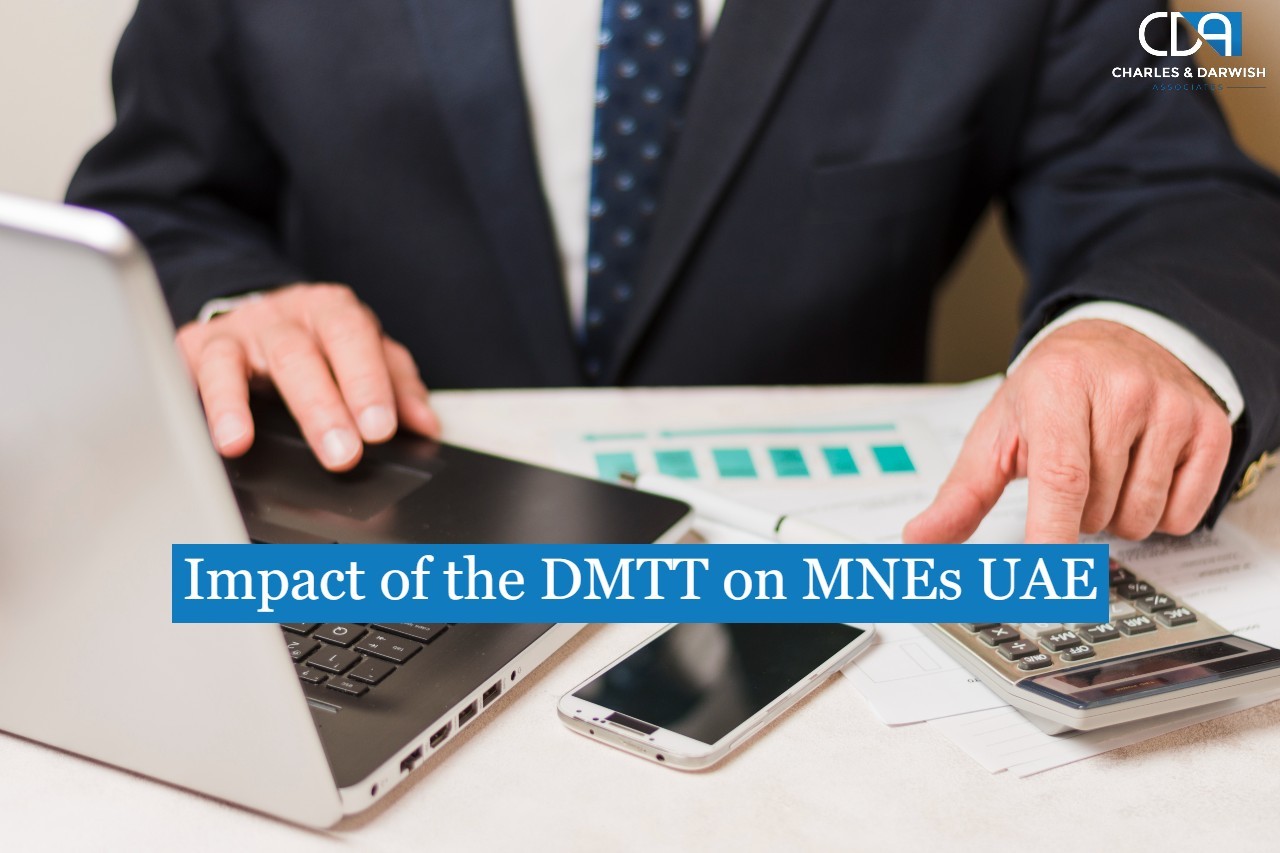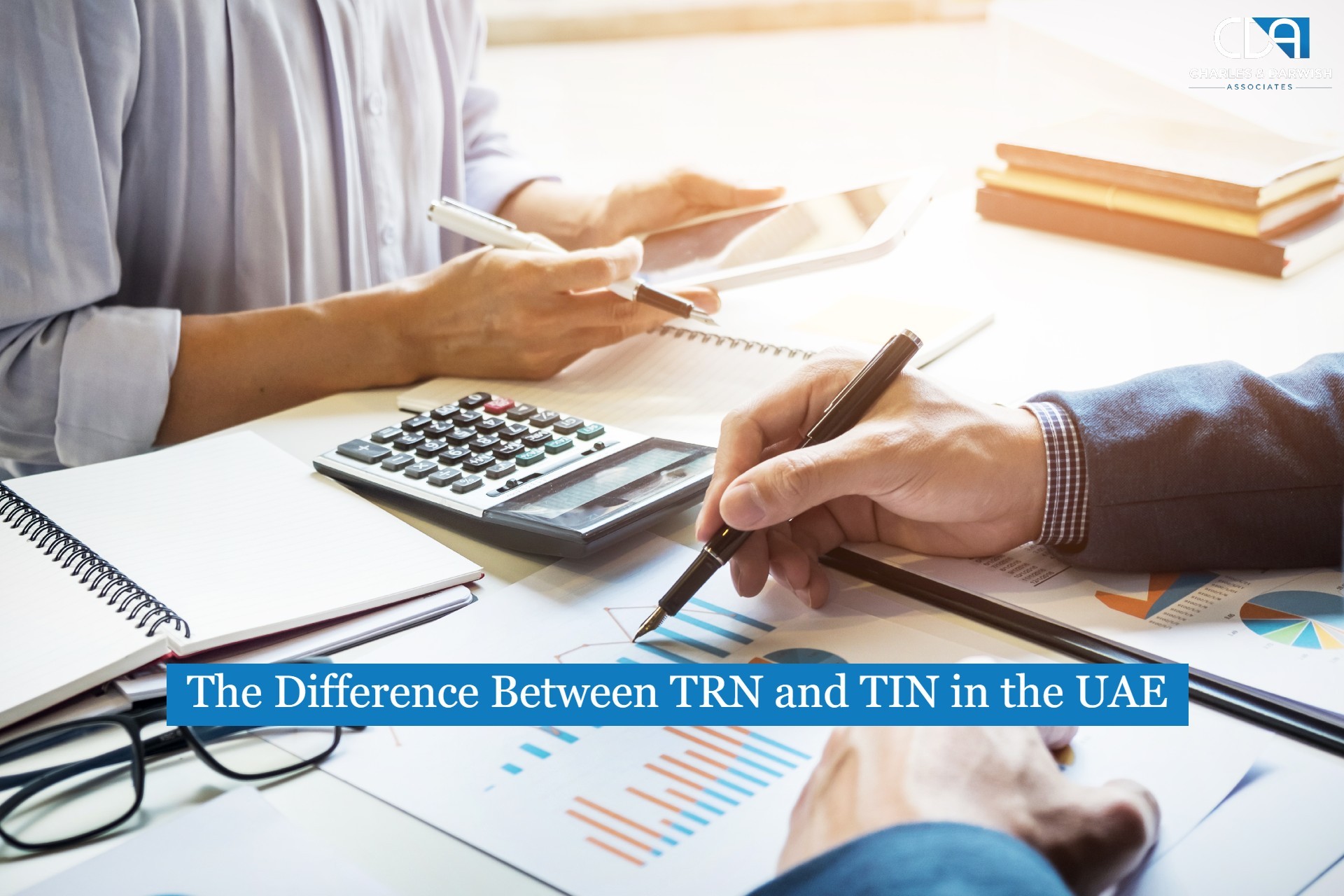What is the impact of the Domestic Minimum Top-Up Tax (DMTT) on MNEs in the UAE?
The UAE has been implementing multiple policies and rules with the motive of supporting the business entities in the land. With the motive of ensuring the growth of the businesses and to align with the global regulations and standards, the UAE has implemented the Domestic Minimum Top-Up Tax (DMTT) from 1st January, 2025, onwards.
The implementation has been made as a response to the OECD's Pillar Two proposal, which targets imposing an effective tax rate of at least 15% on large multinational enterprises (MNEs).
While the UAE has always traditionally attracted foreign commerce with its low-tax and free zone benefits, a reform has come about. This approach also reflects many other GCC countries that have also adopted similar steps for complying with the OECD.
What Does "Domestic Minimum Top-Up Tax" Mean?
The DMTT will be applicable to multinational enterprises having a total revenue of €750 million or more in any of the two years preceding the last four years from the date when the DMTT is implemented. This will ensure that the multinational enterprises operating in the UAE pay the 15% minimum tax rate to comply with the “GloBe” rules of the OECD.
You can also read: How to Setup a Crypto Accounting System for Your Business?
Practical Considerations for UAE-Based MNEs
The DMTT imposes an extra layer of tax complexity that will be required for UAE big business to plan way in advance:
- Increased Taxation: Current groups enjoying the privilege of the low ETR (like those established in free zones or with huge deductions) are to face added tax loads.
- Compliance Overhaul: Strong systems will be needed in MNEs to collect and report data based on GloBE metrics, which differ from domestic tax and accounting norms.
- Cross-Border Group Planning: The DMTT can impact the structuring, bookkeeping, and taxation of the group profits across the globe.
How is the DMTT Calculated?
It is very important to also understand how the DMTT is calculated for businesses in the UAE. Businesses must calculate their Effective Tax Rate (ETR) for UAE activities under GloBE rules to determine whether a top-up is required. The DMTT is applied to the effective tax rate of the MNEs in the UAE; if the ETR falls lower than 15%, then any difference would be the top-up tax by the UAE government.
Example of Application of DMTT
If there is a multinational enterprise, say “ABC,” which generates a global revenue of €2 billion and its subsidiary in the UAE generates a profit of €200 million, for which 9% corporate tax would be payable, which would amount to €18 million. As per the DMTT, an excess amount of €12 million, being 6% of the profit, would be additionally payable by the MNE in order to comply with the 15% minimum rate.
Planning Considerations and Next Steps for MNEs
As the 2025 deadline approaches, readiness with regard to DMTT is an imperative for CFOs, tax leads, and controllers of finance.
A few measures that can be followed for DMTT are:
- Getting insights into Pillar Two's impact on the enterprises: The MNEs must conduct an assessment to identify if there are any entities that fall under the €750 million revenue along with the ETR.
- Ensure compliance: The next step must be to ensure compliance with the regulations and to maintain the data that is relevant for the GloBE calculations.
- Making improvements in financial reporting: The other step includes the making of adjustments and updates in the financial statements, especially for the FY24 financial statements, and making the required disclosures for the DMTT impacts.
- Approach professionals: Keeping in touch with professionals and having their assistance to ensure the compliance and understanding of the tax legislations will enable your organization to ensure compliance to sort out the complexities.
Conclusion
The introduction and implementation of DMTT has been another step towards making the UAE a global business hub. Though it insulates the national competitiveness by predating foreign top-up taxes, it also heralds sophisticated compliance requirements that will impact tax arrangements, information technology systems, and organizational structure.
Considering all of the above, consulting an experienced firm like CDA can be instrumental in navigating around the Domestic Minimum Top-Up Tax (DMTT) for MNEs.
How Can CDA Assist You?
CDA, being one of the leading firms with professional accounting and auditing services along with tax consultation, can assist the MNEs in ensuring compliance with the DMTT. The MNEs in the UAE can approach the professionals of the CDA, from whom they can get the required assistance and guidance in the calculation of the ETR and also regarding the payment of any top-up taxes. The experts of CDA are always at your service to ensure that your MNEs operate without any complications.
To know about the tax services provided by CDA, connect with us now!

Mitesh Maithia
Tax Manager
Mitesh is a Tax Professional with expertise in direct, indirect, and international taxation, including transfer pricing, since 2018. Passionate about making complex tax matters simple, he shares insights to help businesses stay compliant and forward-looking.













